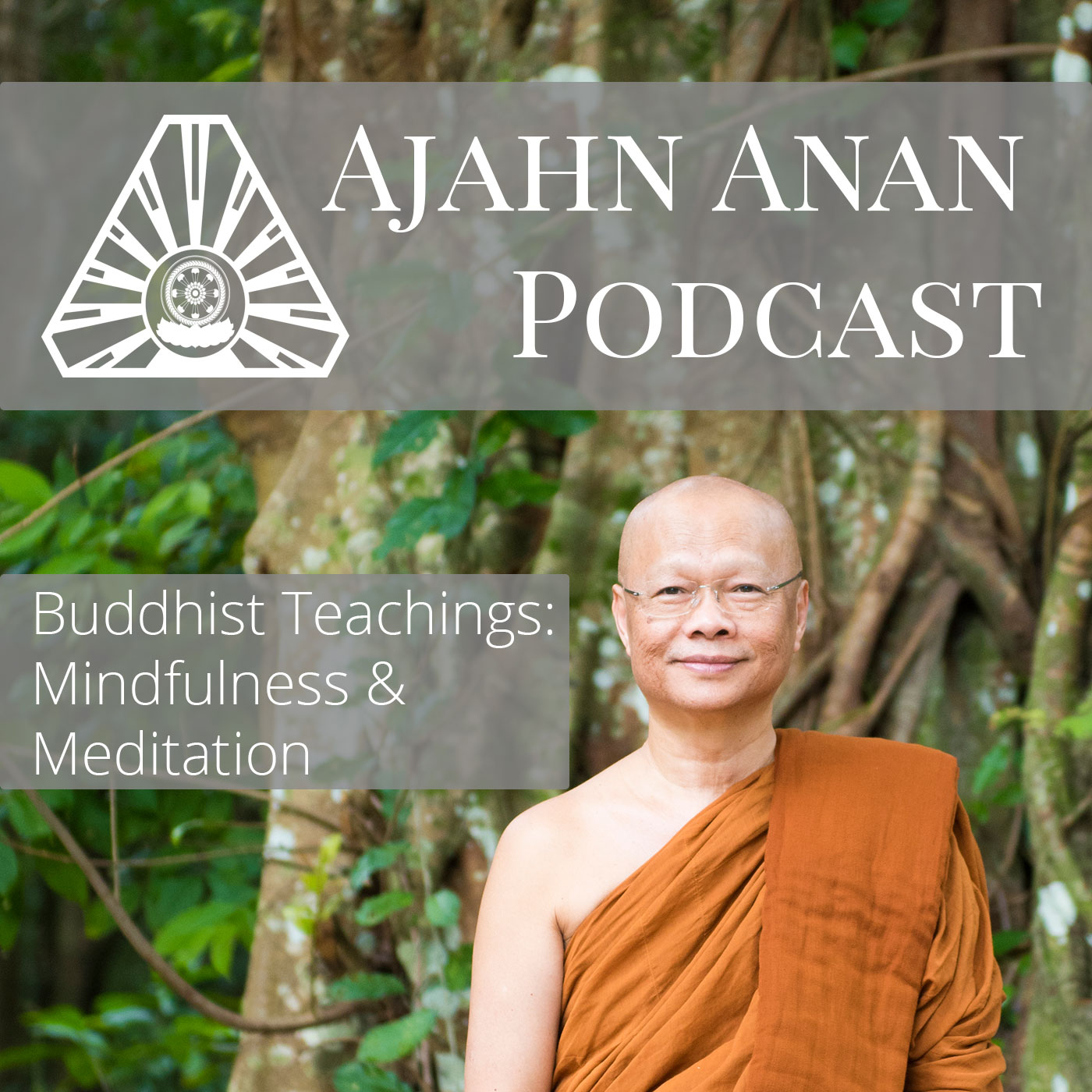
Just as our bodies require an immune system to ward off illness, so our hearts need protection from the objects of the six senses that they experience throughout the day. Mindfulness is our inner immunity. With it, we’re able to feel these sensations while knowing that they are separate from the mind. No sense of self is conjured up, and so we don’t suffer.

2021.08.23 | When chanting with faith, rapture and fullness of heart can arise, and when the mind sees clearly the nature of reality, rapture can arise to a great degree. The Dhamma gives results irrespective of time. May we all be intent and put forth effort in our Dhamma practice.
To join Ajahn Anan and the Wat Marp Jan Community online for daily chanting, meditation, and a Dhamma talk, you can email wmjdhamma@gmail.com for the link. Daily live sessions at 7pm – 9pm, Indochina Time (Bangkok, GMT+7).

2021.08.22 | The two qualities of sati (mindfulness or recollection) and sampajañña (clear knowing) are very important in Dhamma practice. In order for the mindfulness to be right, it must come from Right View. This Right Mindfulness then works to develop Right View even further.
To join Ajahn Anan and the Wat Marp Jan Community online for daily chanting, meditation, and a Dhamma talk, you can email wmjdhamma@gmail.com for the link. Daily live sessions at 7pm – 9pm, Indochina Time (Bangkok, GMT+7).

In this videoconference talk from 10 Sep, 2021, Ajahn Anan talks about the importance of using our incredibly rare gift of being born as a human being to continue building goodness.
“The ones who have died and are human-beings in this present life, where did they come from? We just don’t know. Did they come from heaven? Come from the human realm? Come from the animal realm? We don’t know. But whatever the case is, we are lucky that we have been born as a human. We got a good body already. So the important thing is that we have to continue building goodness. Because we don’t know when we can be reborn as a human again. And the chance to listen to the Dhamma teachings of the Lord Buddha is incredibly difficult. For a fully enlightened Buddha to be born into the world, and to teach the Dhamma and proclaim the path, is incredibly difficult.”

It’s not the case that through the practice we annihilate darkness, rather we bring light into it. Even though the darkness is still there, if there’s a constant bright presence, it can’t do any harm to us.

In this videoconference talk from 3 Sep, 2021, Ajahn Anan talks about experiencing discouragement and despair, which is common amongst people in these difficult times, and how we can overcome them.
“So a good method to overcome our loss of motivation and spirit, is by trying to charge the battery of our spiritual heart. We need to inject the vaccine into our spiritual hearts in order to protect against all serious illnesses. We do this through exercising and through accepting the success that others gain. We are happy with them for their success in their activities, studies, learning, and in their various occupations. When we feel this way, then we are not putting too much pressure on ourselves. We do our thing, according to our abilities, and according to our vassana parami, spiritual accumulations.”

When dye is mixed with clear water, it takes on that colour. But whenever we separate the two out, then the water returns to its original clarity. So too, our original mind is clean and pure, but when it gets mixed with defilement, it becomes dirty and dark. But the defilements and the mind are two separate things, so it is possible to extract them and realise this state of inner purity and clarity.
To join Ajahn Anan and the Wat Marp Jan Community online for daily chanting, meditation, and a Dhamma talk, you can email wmjdhamma@gmail.com for the link. Daily live sessions at 7pm – 9pm, Indochina Time (Bangkok, GMT+7).

2021.08.19 | Ignorance, craving, and attachment are constantly building houses for the mind, revolving in the cycle of birth and death. It is our great good fortune that the path to freedom that the Lord Buddha taught is still here. We do not know when we will get the chance to meet with this path again, so we should practise wholeheartedly while we still can.
To join Ajahn Anan and the Wat Marp Jan Community online for daily chanting, meditation, and a Dhamma talk, you can email wmjdhamma@gmail.com for the link. Daily live sessions at 7pm – 9pm, Indochina Time (Bangkok, GMT+7).

2021.08.18 | When we start out on this path, even though we learn the teaching of not-self, we still have a self. This attachment to ‘me’ and ‘mine’ is not something that we are able to instantly put down. Therefore, we need to make this self good first, by teaching it to be kind, generous, moral and peaceful. Only when we have a stable and wholesome sense of self can the insight into not-self appear.
To join Ajahn Anan and the Wat Marp Jan Community online for daily chanting, meditation, and a Dhamma talk, you can email wmjdhamma@gmail.com for the link. Daily live sessions at 7pm – 9pm, Indochina Time (Bangkok, GMT+7).

In this morning talk, Ajahn Anan tells us of the benefits that accrue from keeping the practices that the Buddha laid down. He recalls how the establishment of his monastery, Wat Marp Jan, came about through maintaining the practice of going on alms round.
